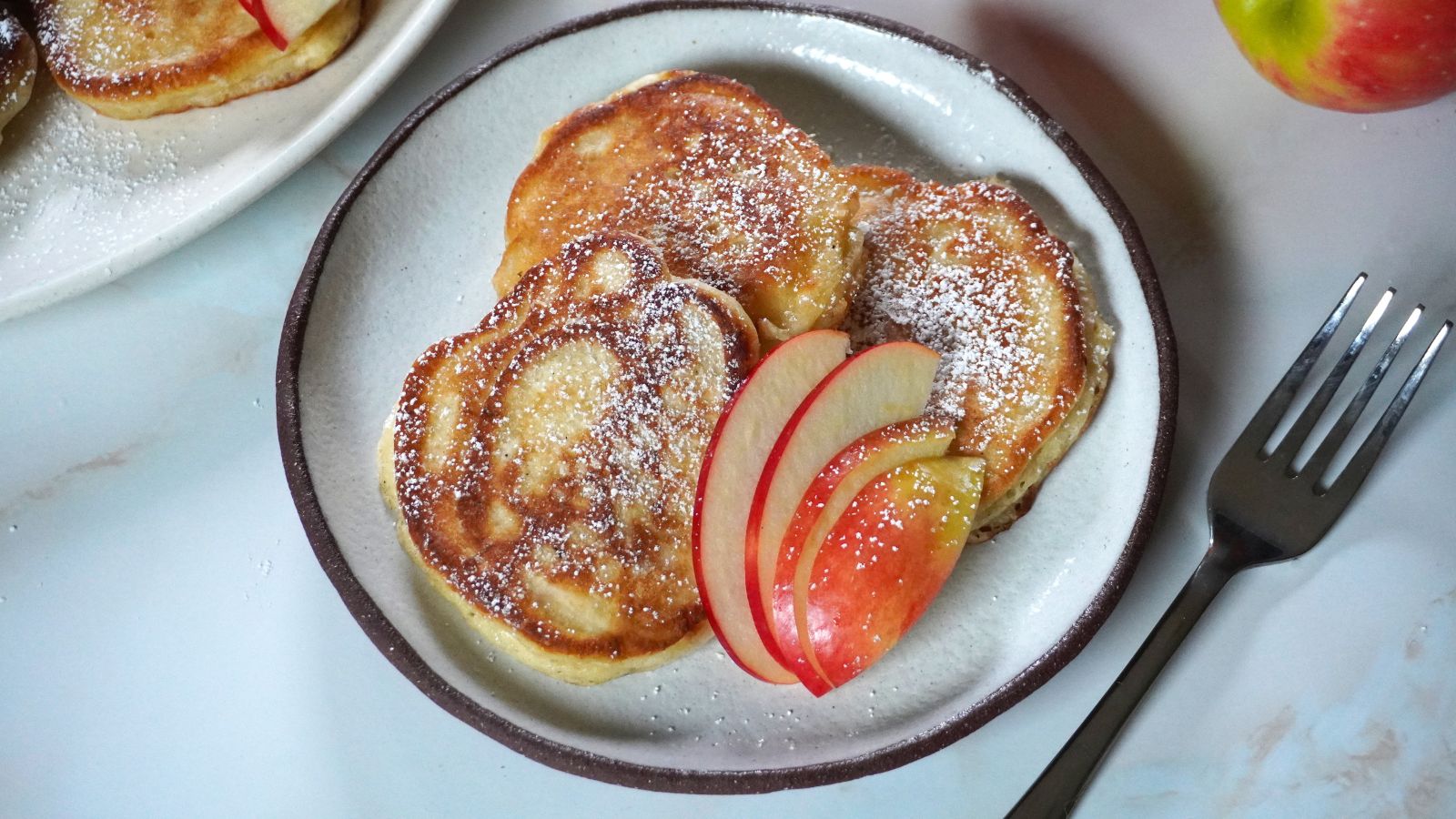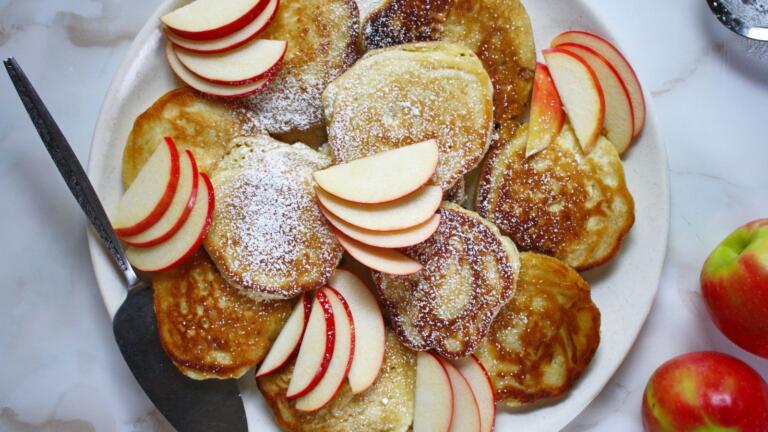Hanukkah is a celebration of oil, and any fritter or pancake can honor this celebrated ingredient. My fried treat of choice are oladi, Russian pancakes that are popular across the former Soviet Union. They come in a variety of styles but their batter is most often made with plain kefir (or buttermilk) and a leavening agent, such as baking powder or yeast. When fruit or cheese are added to oladi, they become fritter-like. They are typically cooked in a generous amount of sunflower oil, allowing them to puff up and become fluffy in the center with golden, crisp edges.
The recipe for oladi first appeared in “Domostroy,” a famous 16th-century Russian book on household matters, but the term oladi comes from the East Slavic word oldaya, which refers to a flat cake of unleavened wheat, that dates back to 1470. Oldaya is derived from the Greek word for oil and is also associated with a Middle Greek oil cake called eladion. While these Russian pancakes may seem distant from the potato pancakes we eat at Hanukkah, the Yiddish word latkes comes from oladka, the Russian diminutive of oladi.
In fact, early latkes were not made from potato at all, but were instead prepared with curd cheese fried in butter or oil, and likely originated in Italy, not Eastern Europe. Potatoes were not cultivated in Europe until the late 16th century; they became a staple crop in Russia and Poland in the 19th century. Once potatoes were ubiquitous in Ashkenazi communities, latkes for Hanukkah were made with potatoes fried in schmaltz.
Oladi can be made plainly with flour, but they are also made with potato, carrot, beans, rice or even squash. Sweet oladi are made with apples or raspberries, especially in Ukraine. Like potato latkes, they are traditionally served with sour cream. You can make these apple oladi even sweeter by topping them with fruit preserves, a generous dusting of powdered sugar, or a drizzle of sweet, golden honey.
The Nosher celebrates the traditions and recipes that have brought Jews together for centuries. Donate today to keep The Nosher's stories and recipes accessible to all.
Sweet Russian Pancakes
These sweet apple pancakes make for the perfect breakfast — on Hanukkah or any time.
- Total Time: 25-30 minutes
- Yield: Serves 4
Ingredients
- 1 medium-size apple
- 1 large egg
- 1 cup plain kefir or buttermilk
- ¼ cup water
- 3 Tbsp sugar
- 1 ½ tsp baking powder
- ½ tsp baking soda
- big pinch of salt
- 2 cups (250 g) all-purpose flour
- oil, as needed (sunflower, avocado or any neutral-tasting oil)
Instructions
- Peel your apple. Dice it very fine by hand or in a food processor.
- In a bowl, whisk together the egg, kefir/buttermilk, water, sugar, baking powder, baking soda and salt until thoroughly combined.
- Add the flour to the bowl, and mix until just combined, be careful not to overmix.
- Add the apple and fold it into the batter until just combined. Do not let the batter sit for too long before cooking the oladi, as the apples will begin to release their juices.
- In a large skillet over medium-high heat, add a generous amount of oil (about ¼” deep in the pan). Once the oil is hot, lower the heat to medium and add ¼ cup of batter for each pancake. Cook for 2-3 minutes per side, or until the oladi are golden brown on each side and have puffed up. Work in batches, and make sure not to crowd the pan.
- Serve immediately dusted with powdered sugar, and with sides of sour cream and fruit preserves.
- Prep Time: 10 minutes
- Cook Time: 15-20 minutes
- Category: Dessert
- Method: Stovetop
- Cuisine: Russian






Love the history lesson behind the recipe! My Bubbie hailed from Poland/Russia/Ukraine depending on the dates and wars and she always made a sweet pancake with raspberries <3 They were always a delight and a far cry from her kneidle (matzah balls) which were link Sinkers! Plunk 🙂
my grandmother made them with cottage cheese versus buttermilk. Thanks for the memory…I’m going to try it with Greek yogurt 😋